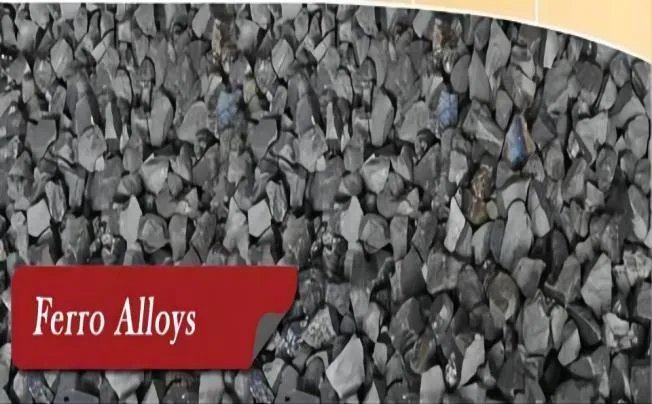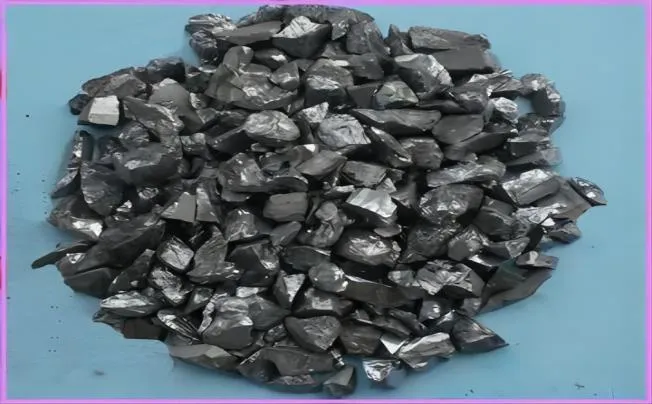Often referred to as crystalline or industrial silicon, silicon metal is a glossy, grey semiconductor mostly used as an addition in non-ferrous alloys. In an electric furnace, quartz and coke are converted into silicon metal, which has a 98% silicon element content (in recent years, silicon metal with a 99.99% silicon content has also been called silicon metal). The remaining impurities are mostly iron, aluminium, calcium, and other elements. Based on the amount of iron, aluminium, and calcium, metallic silicon is classified into several classes, including 553, 441, 411, 3303, 2202, and 1101.
Purpose Of Silicon Metal
1. Use for Al alloy product: It can be added to aluminium alloys to improve their strength, reduce their density and coefficient of thermal expansion, increase their resistance to corrosion and anti-oxidation, improve their casting performance, and give them high impact and pressure resistance.
2. Applied to cold-rolled silicon steel products: By incorporating silicon metal into steel, it may significantly enhance the metal’s magnetic characteristics, boost its permeability, and lower eddy current and hysteresis losses.
3. Use for high-purity semiconductor products: As technology advances, integrated circuits and large-scale integrated circuits made from silicon semiconductors have been used in a variety of fields, with demand for these products rising year over year. This is because silicon has a high melting point, good thermal stability, a large band gap, and abundant resources.
4. Silicone, silicone resin, and silicone oil are examples of organic silicon compounds. Silicone: can be used for cold insulating materials and high-temperature gaskets because it retains its flexibility between -700°C and 2000°C. Silicon resin: A heat temperature of 180 to 2000°C can be utilized to produce high-temperature coatings, as well as insulating paint. Silicone oil: This transparent liquid can also be treated in a colourless form and sprayed on buildings to provide waterproofing. It is used in the manufacture of dielectric liquid, fluid springs, senior lubricants, and polishing agents. The organic silicon industry is using silicon metal more frequently than the aluminium alloy industry; in fact, the volume of consumption is generally greater.
5. Application for the Heat-Resisting Material Product: For the manufacturing of wear-, corrosion-, and heat-resistant Si3N4. Oxidation can be avoided by creating a coated material. Steel surfaces that have been siliconized can increase the steel’s resistance to corrosion.
Applications Of Silicon Metal 411
- Alloying Agent: Silicon Metal 411 is frequently used in the manufacturing of alloys, particularly aluminium alloys, as an alloying agent. It can improve the alloy’s performance and mechanical qualities.
- Metallurgical Industry: The metallurgical industry uses silicon metal 411. It enhances the strength, hardness, and other characteristics of steel and cast iron during manufacture.
- Chemical Industry: Silicon Metal 411 has numerous uses in the chemical industry. It can be used as a raw material to make lubricants, silicones, resins, and other chemicals.
- Refractory Materials: Refractory materials are made using silicon metal 411. It improves these materials’ resistance to oxidation, wear, and heat, making them appropriate for high-temperature applications.
- Solar business: The solar business uses silicon metal 411 to make solar panels and cells. It is essential to the production of solar-powered equipment.
- Powder Metallurgy: Powder metallurgy makes use of silicon metal 411. To enhance the strength and wear resistance of metal powders, it can be added as an addition.
- Other Uses: There are a lot of uses for silicon metal. It is employed in the manufacturing of silicone rubber, lubricants, greases, semiconductors, aluminium alloys, and other products.
The Refinement Process Of Metallic Silicon
More mixing is needed for the refinement of metallic silicon, and compressed air is used to accomplish this. The goal is to decrease heat loss and silicon liquid sticky package, accelerate slagging, eliminate impurities as quickly as possible, and optimise the dynamic conditions of the material’s reactivity of metal components. The majority of the metallic silicon used in daily life is produced artificially, as there is very little metallic silicon that forms naturally. Because of its high hardness, metallic silicon is a valuable abrasive. But unlike other common abrasive metal silicon, it is multipurpose and applicable to a wide range of applications. Its electrical conductivity, thermal conductivity, and resilience to high temperatures are all outstanding.





